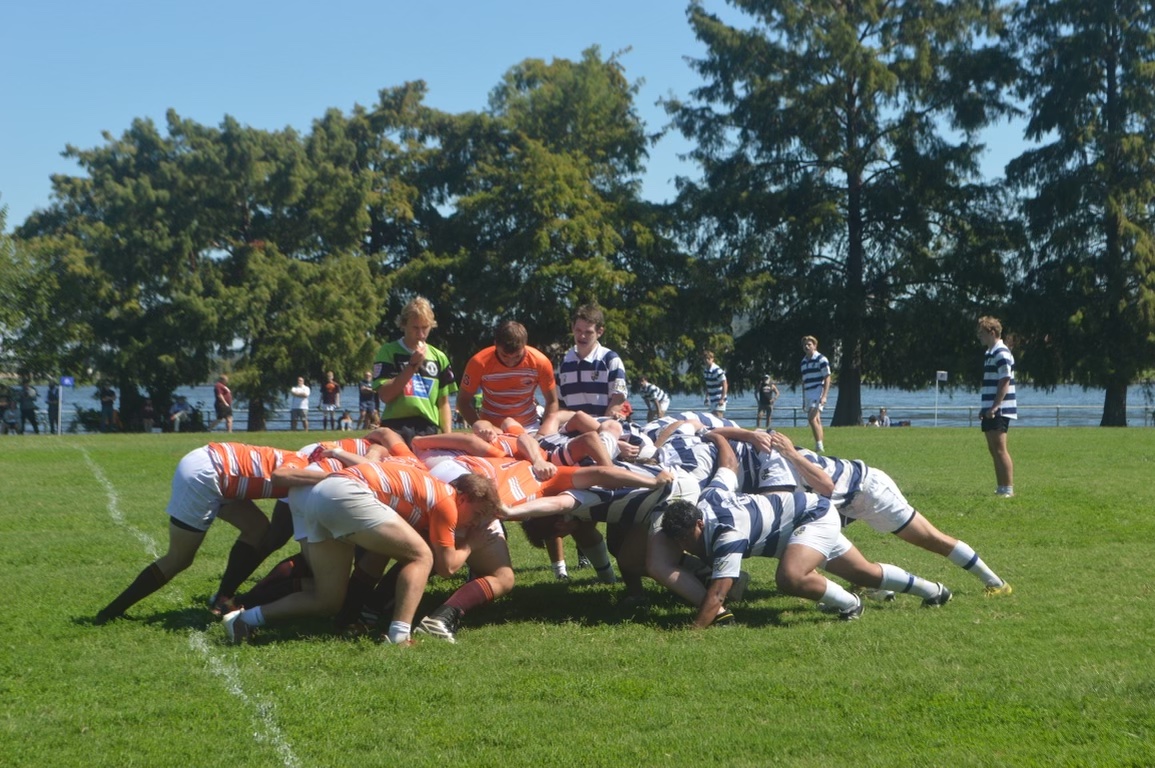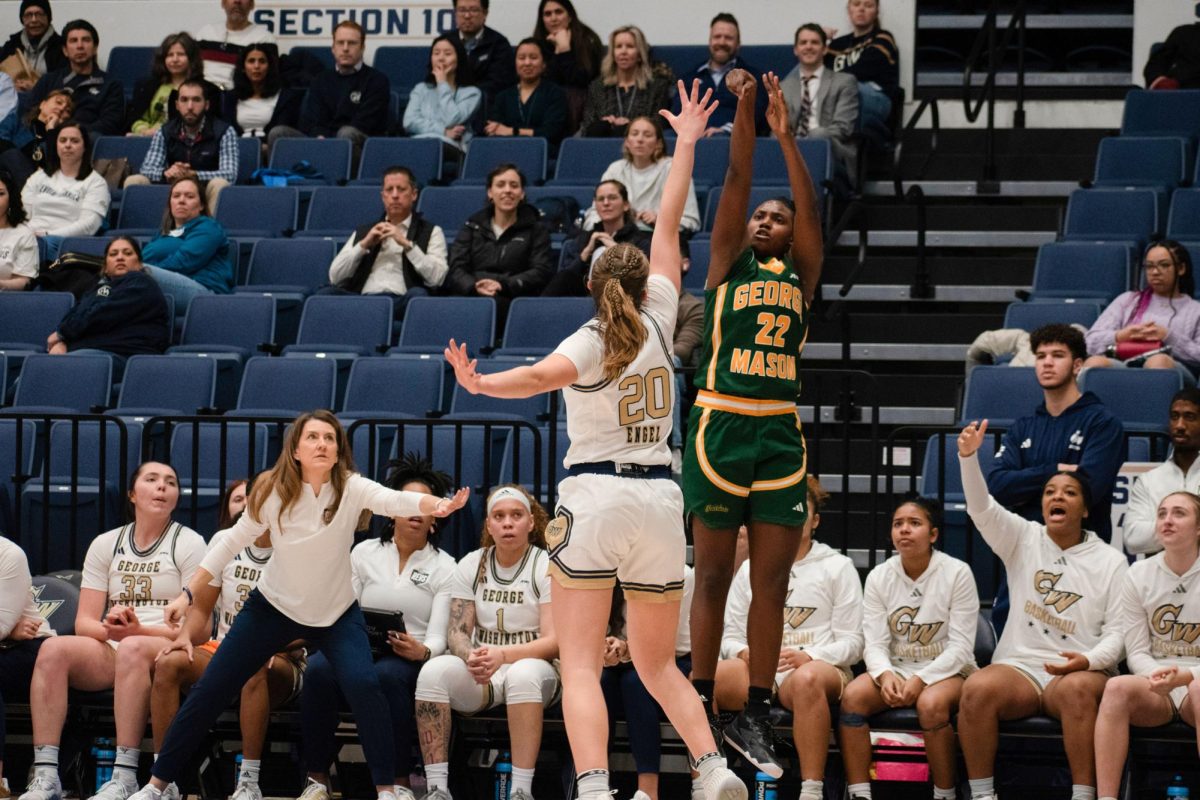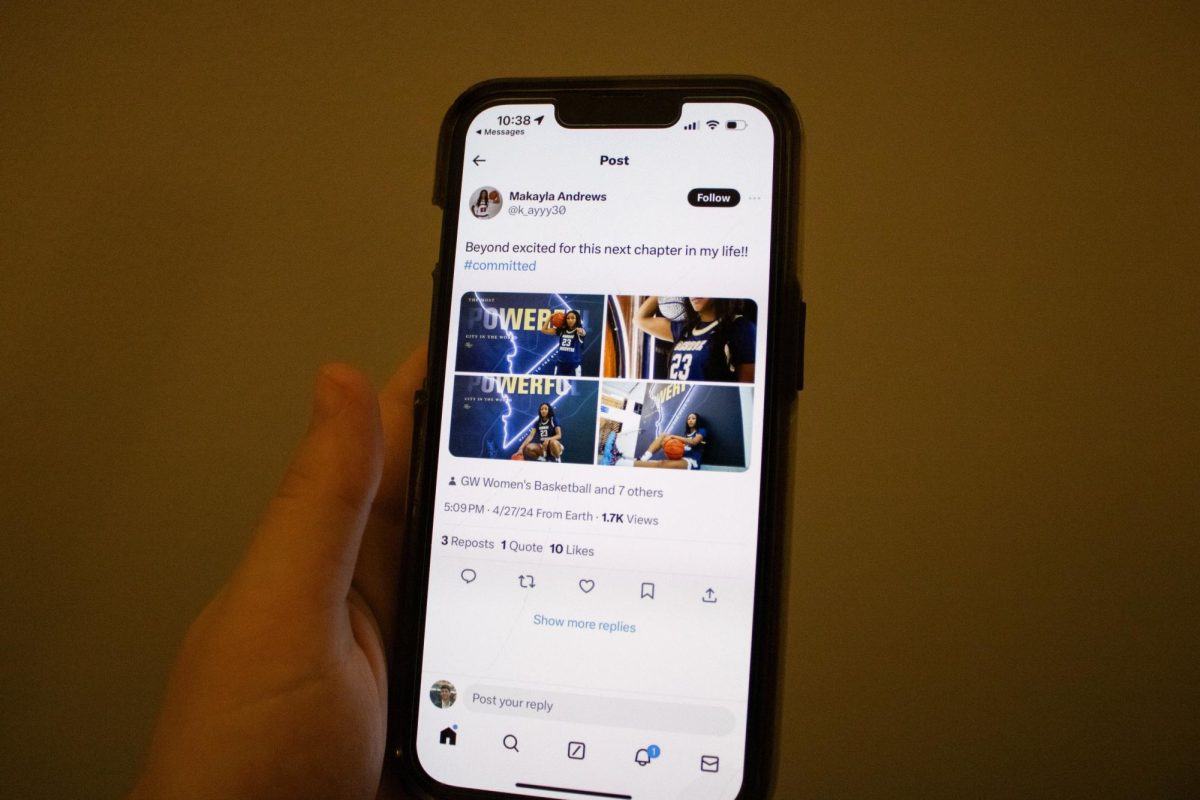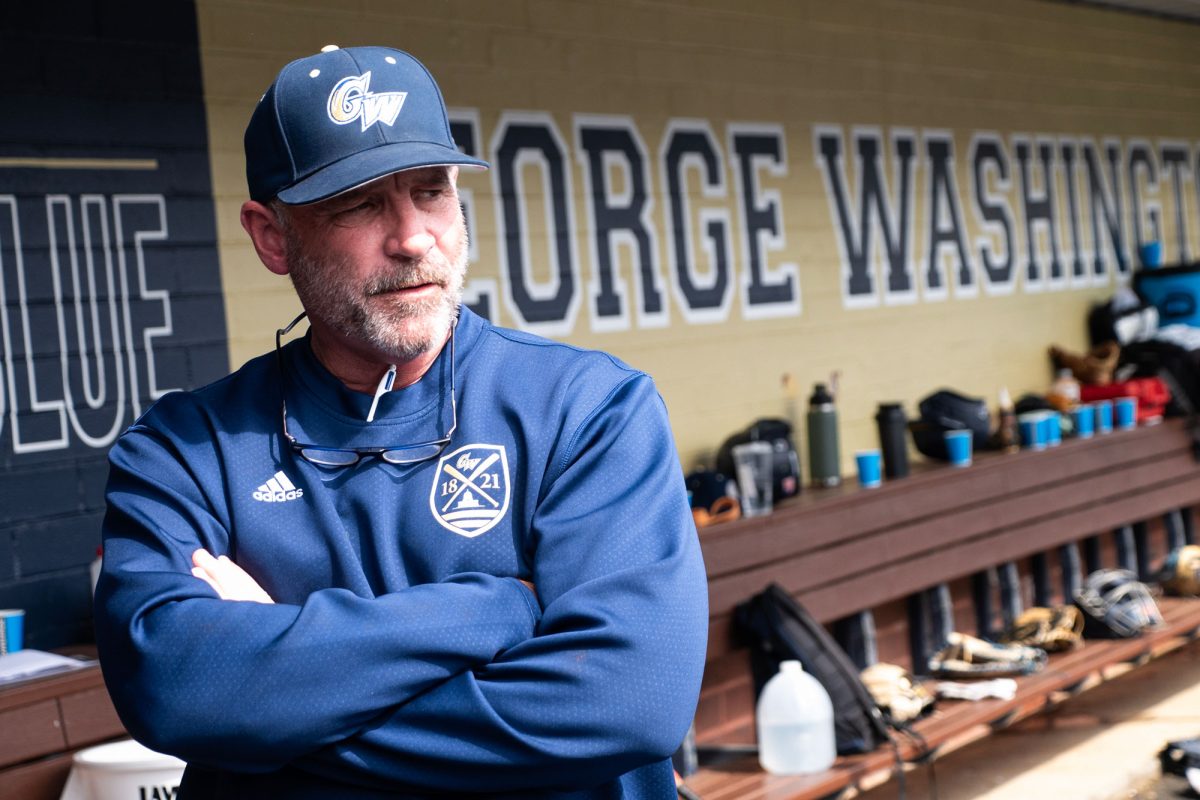Men’s Rugby Football Club is looking to grow their roots within GW’s international student community while improving their on-field performance in its 56th season.
This fall, the squad is staring down a schedule that features three of the nation’s top 10 teams. But despite the daunting strength of their opposition, players say the club prides itself on having a spot for every type of player, utilizing players’ skill sets from other athletic experiences and highlighting players’ natural physical attributes, like speed or size, to help coach them into rugby players.
And while the club is built on athletic competition, junior team president Cass Hough said the club’s culture fosters a sense of community among its players, many of whom are international students.
“A lot of the one semester or the one-year transfers kind of come into it, it’s not struggling to make friends, but it’s an awkward environment,” Hough said. “So joining the rugby team is kind of a quick way to make friends. Because especially if you’re good at rugby and you show up, everyone’s happy to have you.”
Fly-half junior Sam Ogden, who is from Hong Kong, said the team attracts many international students and provides a home for them while also sharing new playing techniques with one another.
“I’m from Hong Kong, there’s also two more kids from Hong Kong,” Ogden said. “On the team, there’s another kid from Japan, someone from China, so there’s like just a different culture blend that really adds to the diversity of the team and the playing styles, which is good for us both on and off the field.”
The club toured internationally four times in the last 20 years, including a trip to Ireland last spring.
Ogden, who went on the trip last semester, said the trip allowed for myriad learning opportunities and fun experiences for the team.
“We played an exhibition match against a local Irish team and it was a lot of fun,” Ogden said. “They were admittedly a lot better than us, but it was just an exhibition match trying to get an understanding of Irish culture and Irish rugby and it was a really good time.”
With the historically international sport rapidly growing in popularity across U.S. college campuses, Head Coach Andrew MacWilliams said the rugby team is attracting new members from all experience levels. MacWilliams estimates that out of approximately 30 players on the team, two out of three new members have no prior experience in the sport.
Although they fell 11-21 to nationally ranked No. 6 Susquehanna on Saturday, the club said they were proud of their ability to compete with an elite squad.
“We managed to put some points on the board against them.” Ogden said. “We’re really proud of that and we’re continuing to work at practice on drilling a certain play style and something that we think could work in the future and help us win games.”
Hough said it is often difficult for players on the team to feel confident going into games against strong opponents, but he is excited to see the team’s abilities in action this year.
“This is the first time in my three years where we’ve had a group of guys that are probably able to compete with our oftentimes superior schedule,” Hough said. “We have three opponents in our schedule that are consistently ranked in the top 10 in the nation. So it’s a struggle usually, but this is one of those years where you look at the group of guys and feel very confident going into those games.”
Despite their strong schedule and status as GW’s oldest club sports team, club members said they don’t always feel supported by the University.
“The University is not always necessarily all that supportive, and they don’t have a lot of mechanisms to help us on that front,” MacWilliams said. “It’s very much grassroots for us.”
The team practices at an off-campus field on 23rd Street and Constitution Avenue that MacWilliams said does not meet their practice needs. He said they have been utilizing the space for the past 40 years.
“There are no lines, there’s barely enough space to run what we need to run,” MacWilliams said. “And certainly, there’s no way to store equipment.”
Including rugby, all club teams at GW rely on their members to assume the organizational and managerial responsibilities, as opposed to intercollegiate sports which are administered and funded by the Department of Athletics & Recreation.
GWRFC received $5,085 from the University for their current season’s fiscal year, according to Student Association allocation documents. The team also started collecting dues this fall, charging members between $100 and $175 per semester to help facilitate additional funds needed for transportation, hiring referees and other emergency necessities. Hough said the team reached a nearly 100 percent collection rate this semester, with some students having dues sponsored through the team’s alumni base.
The team relies on its large alumni network, which operates outside of the University. They have their own bank account and operate as a nonprofit organization that collects money with 501(c)(3) status, allowing them to allocate their donations as needed. When they need things like uniforms, training equipment or funding for travel, the alumni network is able to offer financial support.
MacWilliams said their alumni network has grown stronger over time due to the comradery teammates develop during their time playing for the club.
“Our alumni growth has come out of this,” he said. “We have very sizable endowments for an organization that came out of nothing. It has been a direct response to the lack of financial and oftentimes administrative support that comes from the University.”





